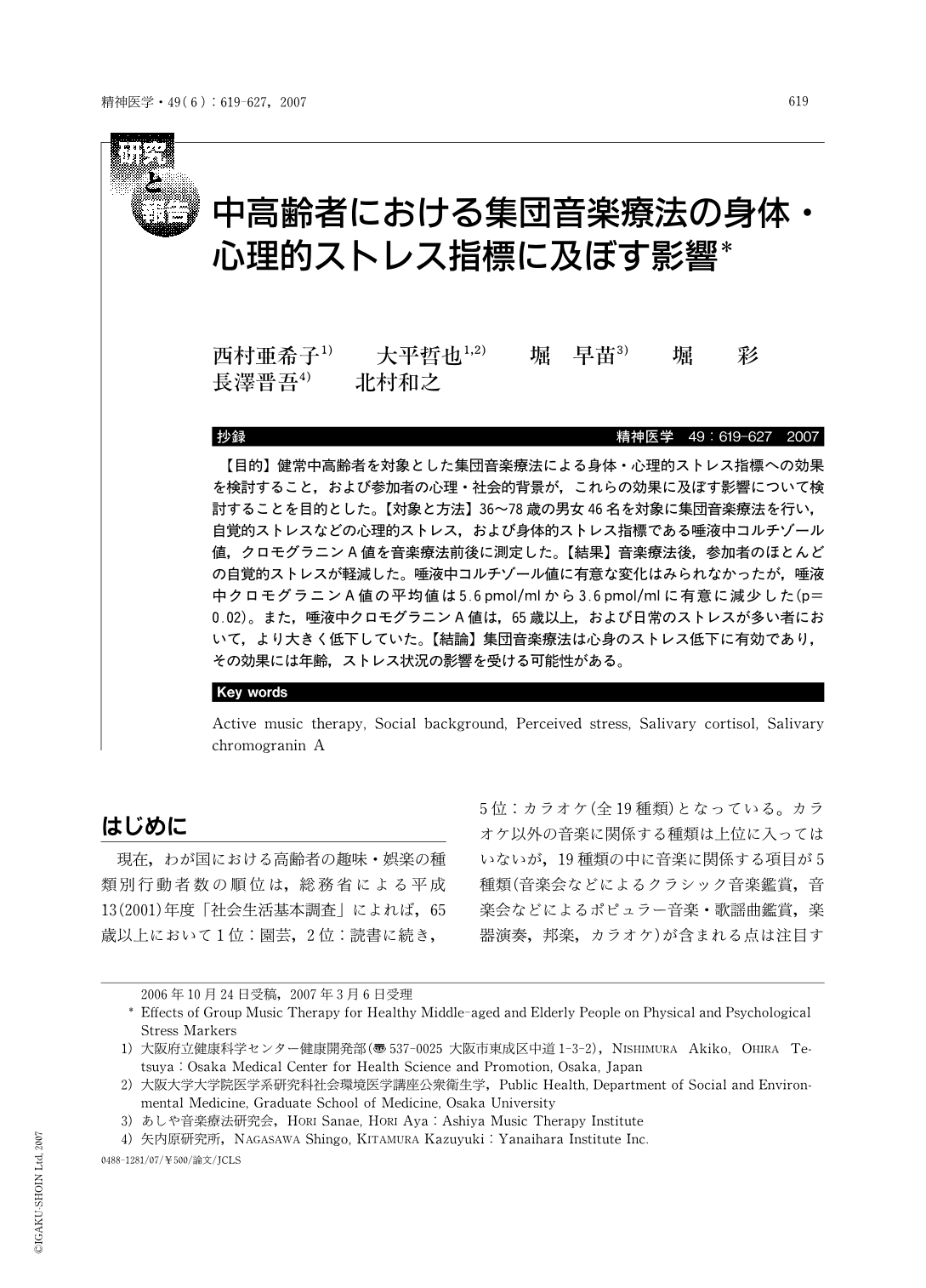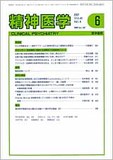Japanese
English
- 有料閲覧
- Abstract 文献概要
- 1ページ目 Look Inside
- 参考文献 Reference
- サイト内被引用 Cited by
抄録
【目的】健常中高齢者を対象とした集団音楽療法による身体・心理的ストレス指標への効果を検討すること,および参加者の心理・社会的背景が,これらの効果に及ぼす影響について検討することを目的とした。【対象と方法】36~78歳の男女46名を対象に集団音楽療法を行い,自覚的ストレスなどの心理的ストレス,および身体的ストレス指標である唾液中コルチゾール値,クロモグラニンA値を音楽療法前後に測定した。【結果】音楽療法後,参加者のほとんどの自覚的ストレスが軽減した。唾液中コルチゾール値に有意な変化はみられなかったが,唾液中クロモグラニンA値の平均値は5.6pmol/mlから3.6pmol/mlに有意に減少した(p=0.02)。また,唾液中クロモグラニンA値は,65歳以上,および日常のストレスが多い者において,より大きく低下していた。【結論】集団音楽療法は心身のストレス低下に有効であり,その効果には年齢,ストレス状況の影響を受ける可能性がある。
OBJECTIVE:A number of studies have reported the positive effects of group music therapy for the elderly on cognitive function such as prevention of dementia and improvement of dementia-related symptoms. However, the effect of music therapy for healthy elderly on a stress reduction has not been elucidated. This study was aimed at examining the effects of music therapy for healthy elderly people on perceived stress and stress-related physiological markers, and whether the bio-psycho-social background of a participant such as age, music experience, and daily stress modified these effects.
METHODS:We performed group music therapy for 46 men and women aged 36 to 78 years. Psycho-physiological stress markers, including perceived stress, salivary cortisol, and salivary chromogranin A, were measured before and after a session of music therapy. The session combined passive music therapy such as listening to music and active music therapy incorporating a chorus and a musical performance of a tone and a bar chime.
RESULTS:Ninety eight percent of participants reported a reduction in perceived stress after music therapy. Age, music experience, and daily stress did not influence reduction in perceived stress. Mean levels of salivary chromogranin A reduced significantly after music therapy, whereas mean levels of salivary cortisol did not reduce significantly. In addition, the associations of music therapy with chromogranin A were clearly observed among participants whose age was older than 65 years and who felt daily stress strongly.
CONCLUTION:The present study indicates that group music therapy may reduce both perceived stress and salivary chromogranin A, and the bio-psycho-social background of a participant may modify the effects of music therapy on stress reduction.

Copyright © 2007, Igaku-Shoin Ltd. All rights reserved.


